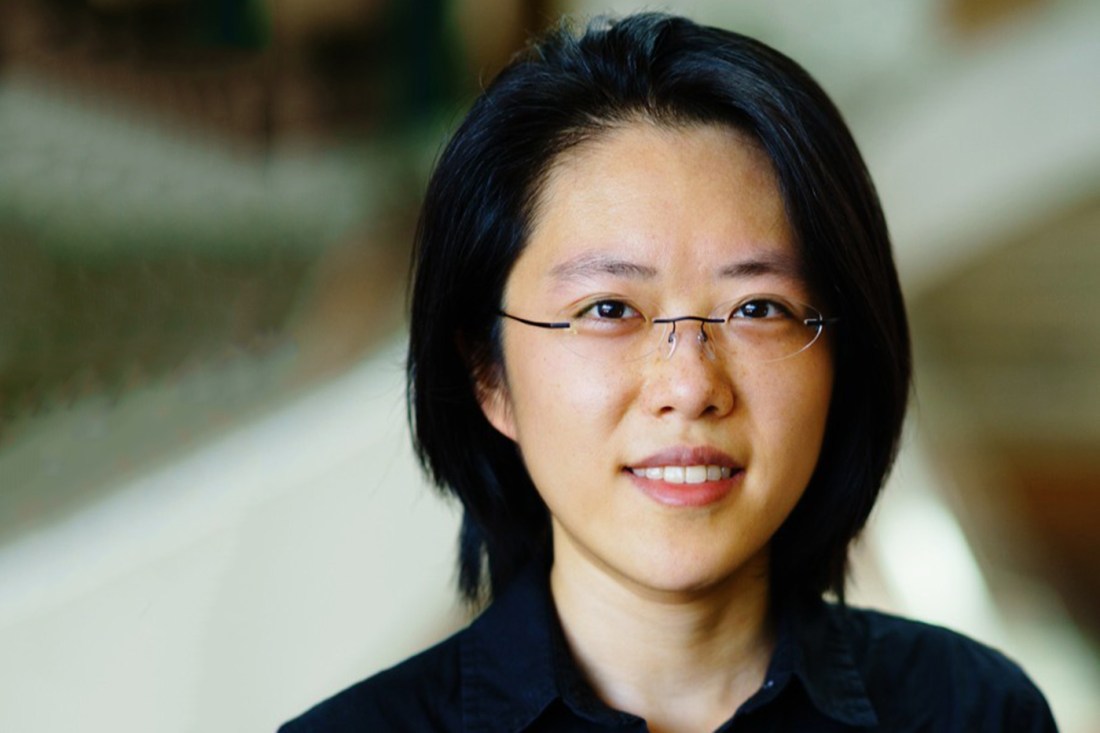As an undergraduate student, Sijia Dong — now an assistant professor of chemistry and chemical biology at Northeastern University — found standing around in a laboratory, “watching solutions to go through a separation system droplet by droplet,” waiting for an experiment to finish, “a rather boring experience, prone to errors,” she says.
“Not everybody in the field of chemistry is good at doing things with their hands,” she quips, “and even the best experimental chemists have their limit in the number and types of experiments they can do.”

Instead of physically manipulating chemicals, Dong — recently named a Scialog Fellow by the Research Corporation for Science Advancement — is a computational chemist who uses “physics-based simulations and data-driven methods to accelerate molecular discovery.”
For Scialog (a portmanteau of “science” and “dialog”), Dong will be participating in their Automating Chemical Laboratories initiative, a project that entails more than “a specific instrument that’s replacing human labor,” she says.
Dong describes how “traditionally, chemists mix compounds in a lab to synthesize certain molecules that they want.”
It’s easy to imagine how this physical labor might be replaced by robotic means, but “automating a lab is more than that,” Dong says, “it’s more than just automating a certain procedure.”
“There needs to be a loop that involves automated experiments and making decisions about the next set of experiments to do,” she continues. “In a manual lab, it is a human that makes these decisions.” ”
Automating this decision-making process is the task Dong’s most excited to tackle. “Instead of a person making a decision of what to do next, you can incorporate artificial intelligence and simulations to make that decision.”
Dong will meet with other Scialog Fellows in the Automating Chemical Laboratories initiative, beginning in April 2024, and several more times through 2026, to work on precisely this question.
“We have these software programs in computational chemistry,” Dong says, that “can simulate certain properties that people can never get from an experiment.
“When we are thinking about automating chemical labs, we can certainly incorporate information from a simulation to this process of decision-making. We automate these simulations so that they can be incorporated smoothly.”
In teams of two or three, Dong and her other fellows will compete for grants of $60,000 per team member for their respective projects.
In addition to the Automating Chemical Laboratories initiative, Scialog supports other dialogue programs, like Sustainable Minerals, Metals, and Materials and Molecular Basis of Cognition.
When she was an undergraduate student, Dong says, “I fantasized about this idea of having an automated instrument, or ultimately lab, that does the experiment for me.”
“I’m really excited that it is happening,” she says. “It is really a nascent field that has a lot of potential.”
“Scientifically,” Dong continues, “I think this will really revolutionize how chemical discovery is done, and how we train the next generation of chemists.”
Ultimately, Dong foresees a laboratory environment that can “integrate human intelligence with physics-based simulations and artificial intelligence to shift the paradigm of how people do science.”
Noah Lloyd is a Senior Writer for NGN Research. Email him at n.lloyd@northeastern.edu. Follow him on X/Twitter at @noahghola.
